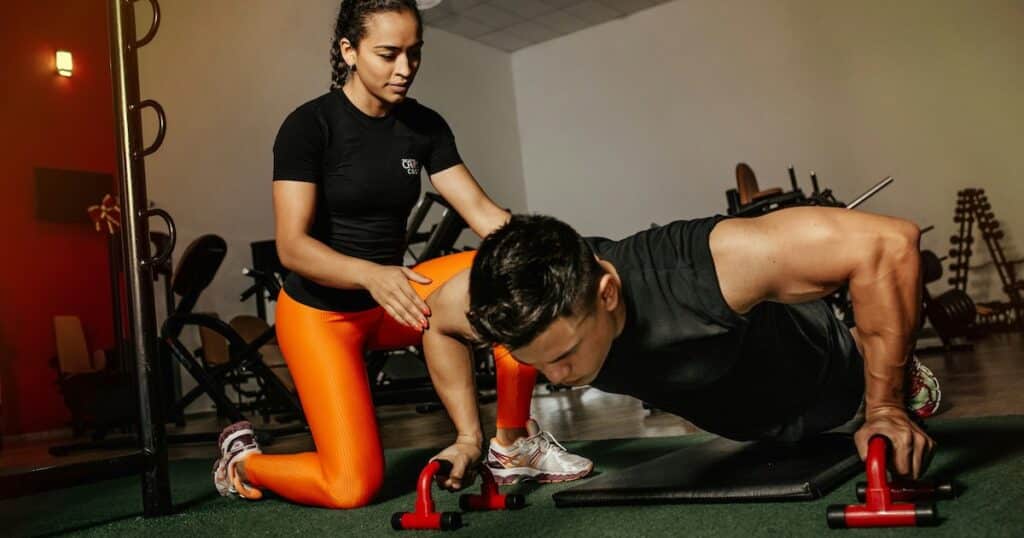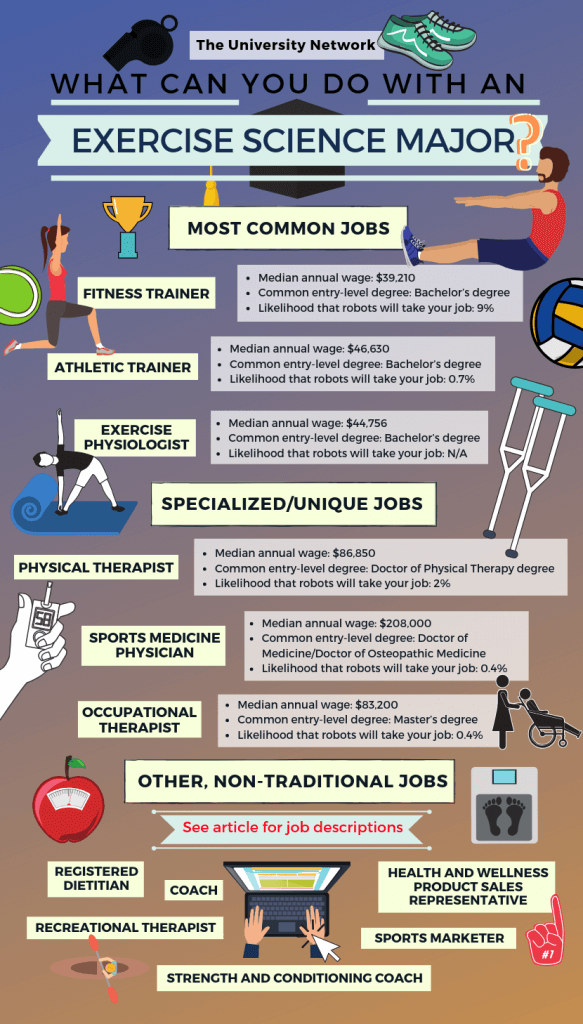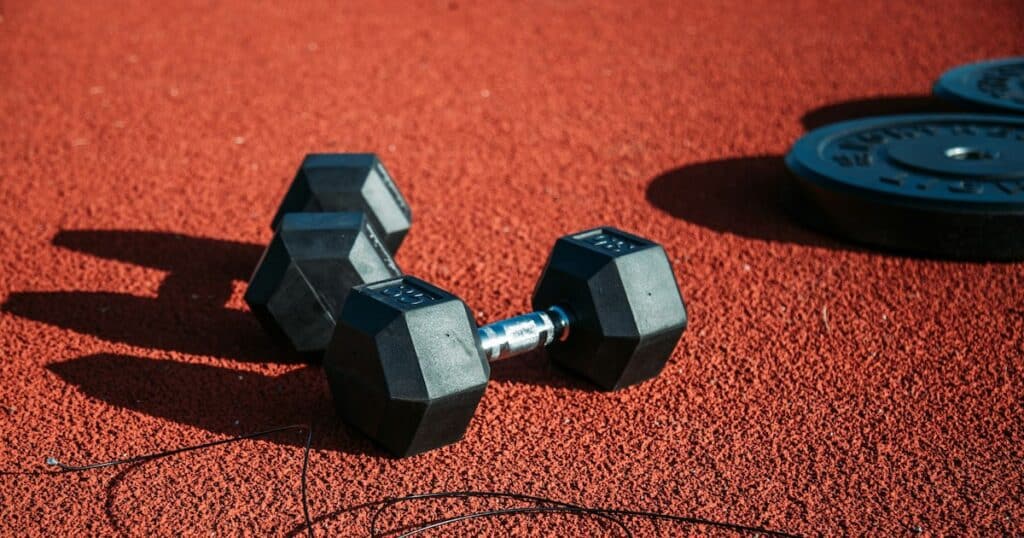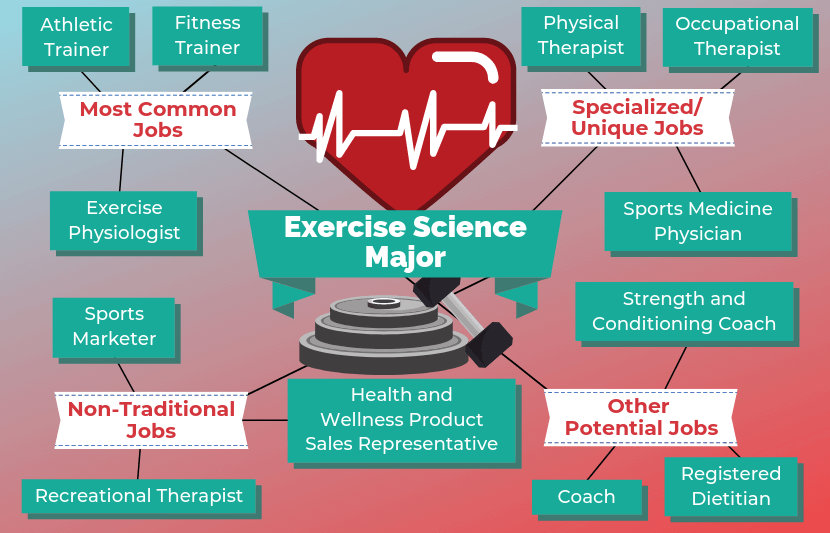Exercise Science Degree Career Options

Exercise science is a multidisciplinary field that focuses on issues of health, fitness, and physical activity. Bringing together coursework in health science, biology, and kinesiology, an exercise science degree provides students with a strong foundation to pursue careers and further education in the fields of medicine and therapy. Exercise science is not a professional degree, meaning that it won’t necessarily prepare you for a specific job title. However, graduates with a bachelor’s degree in exercise science can find work in fitness, athletic training, exercise physiology, and a number of other fields.
Here is a list of 12 possible jobs for exercise science majors:
Most Common Jobs for Exercise Science Majors
1. Fitness Trainer
Fitness trainers lead group fitness classes and provide private fitness training to individuals. Fitness trainers may lead a variety of exercise classes, teaching cardiovascular exercises, strength training, stretches, aerobics, and more. They often provide guidance related to injury prevention, nutrition, and general health, as well. There is not always an educational requirement to become a fitness trainer, though many employers, including gyms and exercise facilities, increasingly seek out applicants with a bachelor’s degree in exercise science or a related area of study.
Median annual wage: $39,210
Common entry-level degree: Bachelor’s degree
Likelihood that robots will take your job: 9%
2. Physical Education Teacher
Physical Education (PE) teachers work at the K-12 level instructing students in fitness, health, and sports. Typically, PE teachers have a well-rounded knowledge of the human body and a variety of sports, including basketball, tennis, football, gymnastics, and many more. To become a PE teacher, you often have to enroll in a teacher education program and pass all required state licensing exams.
Median annual wage: $55,000
Common entry-level degree: Bachelor’s degree
Likelihood that robots will take your job: 1%
3. Exercise Physiologist
Exercise physiologists design fitness programs for patients recovering from chronic illnesses or injuries. They craft specialized exercises catered to the medical needs of their patients, who may suffer from a variety of diseases, such as pulmonary disease or cardiovascular disease, that restrict their ability to move or make it difficult to exercise. Most exercise physiologists have a private practice or are self-employed. Others work in hospitals, physician’s offices, or in clinics. In order to become an exercise physiologist, you will need at least a bachelor’s degree. Certification is not necessary to practice in most states in the United States. Louisiana is the only state that requires licensure.
Median annual wage: $44,756
Common entry-level degree: Bachelor’s degree
Likelihood that robots will take your job: N/A

Specialized/Unique Jobs for Exercise Science Majors
4. Physical Therapist
Physical therapists work with patients to recover from physical injuries or illnesses, assisting them so that they can gradually regain control over their bodies and pain. They develop recovery plans that involve stretching, strength training, exercise, soft tissue work, and physical manipulation. Becoming a physical therapist requires advanced training. You’ll need to complete a Doctor of Physical Therapy degree program, which typically takes 3 years. Many also complete a clinical residency program, which typically takes about a year.
Median annual wage: $86,850
Common entry-level degree: Doctor of Physical Therapy degree
Likelihood that robots will take your job: 2%
5. Sports Medicine Physician
Sports medicine physicians are doctors who specialize in working with athletes and treating athletic injuries. Their jobs consist of diagnosing, treating, and helping to prevent injuries that commonly occur when playing sports. These are typically musculoskeletal injuries, such as knee injuries, muscle strains, ligament sprains, fractures, tendinitis, and head injuries, including concussions. Becoming any kind of physician requires a lot of time and rigorous work. After you get your bachelor’s degree, you will need to take the Medical College Admissions Test (MCAT), attend medical school for four years and earn a medical degree, and then complete a residency program. Many sports physicians complete their residency in family medicine (which generally take about three years), though they may also choose a residency in internal medicine, emergency medicine, or physical medicine and rehabilitation. After completing a residency, sports medicine physicians need to complete a 1-2 year fellowship in sports medicine.
Median annual wage: $208,000
Common entry-level degree: Doctor of Medicine/Doctor of Osteopathic Medicine
Likelihood that robots will take your job: 0.4%
6. Occupational Therapist
Occupational therapists treat ill, injured, and disabled patients with a variety of therapies to help them live with or recover from their conditions. Occupational therapists typically specialize in treating individuals with a particular condition and utilize therapeutic methods that are specifically catered to their patients and ailment. Typically, they also advise individuals to help them live more independently and mitigate risks in their lives. For example, occupational therapists who work with permanently disabled individuals may recommend specialized equipment like wheelchairs and assist them in performing daily tasks. To become an occupational therapist, you will need a master’s degree or doctorate in occupational therapy. Occupational therapists must also pass an exam to become registered by the National Board for Certification in Occupational Therapy (NBCOT).
Median annual wage: $83,200
Common entry-level degree: Master’s degree
Likelihood that robots will take your job: 0.4%
Non-Traditional Jobs for Exercise Science Majors
7. Recreational Therapist
Recreational therapists use games and activities to assist patients who struggle from a variety of disabilities, illnesses, injuries, or mental conditions. They engage in a variety of activities with patients, which may include sports, games, dance, or arts and crafts. They also may provide emotional support to patients, family and friends. In order to become a recreational therapist, you will need at least a bachelor’s degree. Some employers also look for candidates with official National Council for Therapeutic Recreation Certification (NCTRC).
Median annual wage: $47,680
Common entry-level degree: Bachelor’s degree
Likelihood that robots will take your job:0.3%
8. Health and Wellness Product Sales Representative
Exercise science majors who have an interest in business might choose to pursue a job as a health and wellness product sales representative. In this role, you might work for a variety of companies that produce health and wellness products, such as vitamins, nutritional supplements, exercise products, or even pharmaceuticals. Typically, employers look for candidates with some level of knowledge about their product or area of business. Becoming a sales representative only requires a bachelor’s degree, though some may choose to pursue further education in marketing or business.
Median annual wage: $56,970
Common entry-level degree: Bachelor’s degree
Likelihood that robots will take your job:85%
9. Sports Marketer
Sports marketers are marketers who work for sports teams, athletic wear companies, and other exercise and sports-related companies and organizations. As with all marketing professions, the job of a sports marketer primarily consists of designing and executing various kinds of promotional and advertising campaigns to elevate the public perception of their employer. Exercise science majors are particularly well-suited to promote athletic products. To find a job in sports marketing with a degree in exercise science, you will need at least a bachelor’s degree with additional coursework in marketing and business.
Median annual wage: $63,230
Common entry-level degree: Bachelor’s degree
Likelihood that robots will take your job: 61%
Other Potential Jobs for Exercise Science Majors
10. Registered Dietitian
Registered dietitians (RDs), also called registered dietitian nutritionist (RDN), are credentialed nutrition experts who work directly with patients in clinical settings, advising them on their dietary choices and overall health based on their specific health needs. RDs treat patients with chronic conditions with medical nutrition therapy (MNT), evidence-based nutrition plans specially-catered to the patient’s unique health condition. The majority of RDs work in hospitals, outpatient care centers, and private practices. Others may work in government as public policy advisors. The RD and RDN credentials are effectively the same; in practice, RDs and RDNs perform the same job. RDs typically earn bachelor’s degrees in nutrition, so undergraduate exercise science students should consider pursuing a second major or a graduate degree in nutrition. RDs also need to complete an internship accredited by the Accreditation Council for Education in Nutrition and Dietetics (ACEND) and pass the Commission on Dietetic Registration (CDR) exam. Aspiring RDs interested in working specifically in sports nutrition can choose to pursue a specialty credential in sports dietetics. The Board Certification as a Specialist in Sports Dietetics (CSSD) credential is available to RDs who meet a set of eligibility requirements outlined by the CDR.
Median annual wage: $59,410
Common entry-level degree: Bachelor’s degree/Master’s degree
Likelihood that robots will take your job: 0.4%
11. Coach
Coaches teach amateur and professional athletes how to play their sports and train them to perform well. They lead practices, draft game plans, call plays, and make game management decisions. They typically also assist in the scouting and recruitment of athletes. Coaches may work at the grade school, college, semi-professional and professional levels. Most coaches are employed by schools, universities, or professional sports teams. Most coaching positions require a bachelor’s degree, though there are options available to individuals with no degree but extensive playing experience at higher levels of their sport. Coaches typically have playing experience, but it is not always necessary.
Median annual wage: $32,270
Common entry-level degree: Bachelor’s degree
Likelihood that robots will take your job:1.3%
12. Strength and Conditioning Coach
Strength and conditioning coaches are fitness trainers who specialize in working with athletes rather than the average population. They work for sports teams or individual athletes creating and implementing training programs designed to improve athletic performance. They also often create nutrition programs for the athletes they train and provide guidance on injury prevention. The National Strength and Conditioning Association (NSCA) offers the Certified Strength and Conditioning Specialist (CSCS) for aspiring strength and conditioning coaches. To qualify, you will need at least a bachelor’s degree in exercise science or a related field. You will also need to pass the CSCS Exam. Salaries in the field vary dramatically. While the top strength and conditioning coaches in professional and college sports make upwards of $100,000 per year, most strength and conditioning coaches make salaries in the $30,000-$40,000 range.
Median annual wage: $39,995
Common entry-level degree: Bachelor’s degree
Likelihood that robots will take your job: N/A
Takeaways for Exercise Science Jobs
Exercise science careers play a critical role in promoting health and wellness in today’s society. As chronic diseases and sedentary lifestyles become increasingly prevalent, the expertise of professionals in this field is essential in helping individuals and communities adopt healthier behaviors. Here’s an analysis of the importance of various exercise science careers, focusing on their contributions to exercise regimens, healthy lifestyles, and overall wellness goals.
1. Role of Exercise Science in Public Health
Exercise science encompasses a range of disciplines, including kinesiology, exercise physiology, biomechanics, and nutrition. Professionals in this field are equipped to design and implement effective exercise programs that cater to diverse populations. With a focus on evidence-based practices, exercise scientists contribute to public health initiatives aimed at reducing obesity rates, preventing chronic diseases, and enhancing overall quality of life.
2. Key Careers in Exercise Science
a. Physical Education Teacher
Physical education teachers are instrumental in instilling the value of physical activity in children and adolescents. They create engaging curricula that encourage students to participate in various sports and fitness activities, fostering a lifelong appreciation for exercise. By emphasizing teamwork, skill development, and the benefits of an active lifestyle, these educators lay the foundation for healthier future generations.
b. Exercise Physiologist
Exercise physiologists specialize in understanding how physical activity impacts the body’s systems. They design tailored exercise programs for individuals with chronic conditions, rehabilitation needs, or fitness goals. By conducting fitness assessments and monitoring progress, they provide crucial support that helps clients safely achieve their wellness objectives. Their work is particularly vital in clinical settings, where they aid in recovery from injuries and improve the quality of life for patients.
c. Fitness Trainer/Coach
Personal trainers and coaches motivate and guide individuals in their fitness journeys. They develop personalized workout plans, provide nutritional advice, and encourage clients to stay accountable. Their hands-on approach helps individuals overcome barriers to exercise and fosters a supportive environment for achieving wellness goals. With a growing emphasis on mental health, many trainers also incorporate mindfulness and stress-reduction techniques into their programs.
d. Sports Nutritionist
Sports nutritionists focus on the dietary needs of athletes and active individuals, helping them optimize performance through proper nutrition. By providing tailored meal plans and nutritional education, they ensure that clients fuel their bodies effectively for exercise and recovery. This career is increasingly important as awareness of the connection between nutrition and performance continues to grow.
3. The Broader Impact of Exercise Science Careers
The importance of exercise science careers extends beyond individual clients. Professionals in this field also engage in community health initiatives, workplace wellness programs, and educational campaigns. They advocate for policies that promote physical activity and work with organizations to create environments conducive to exercise, such as accessible parks and recreational facilities.
4. Challenges and Opportunities
Despite the clear benefits of exercise science careers, professionals face challenges such as funding for programs, public misconceptions about exercise, and the need for ongoing education to keep up with the latest research. However, the rise of telehealth and digital fitness platforms presents new opportunities for exercise science professionals to reach broader audiences and provide accessible resources for wellness.
Conclusion
Exercise science careers are vital in promoting exercise regimens, healthy lifestyles, and wellness goals in today’s society. Through various roles—from physical education teachers to exercise physiologists—these professionals contribute to a culture of health that addresses the growing challenges of sedentary behavior and chronic diseases. As society increasingly recognizes the importance of physical activity, the demand for skilled exercise science professionals will continue to grow, emphasizing their essential role in fostering a healthier future.
10 Famous People Who Studied Exercise Science

- Mark Asanovich, NFL strength & conditioning coach
- Tim Noakes, exercise scientist
- William Kraemer, exercise scientist
- Sophia Nimphius, exercise scientist
- John McFall, Paralympic athlete
- Mickey Marotti, NCAA strength & conditioning coach
- Peter Phillips, member of the British royal family
- Mike Gittleson, strength & conditioning coach
- Tim Gabbett, exercise scientist
- Rob Newton, exercise scientist
To explore options for other majors, click here.



